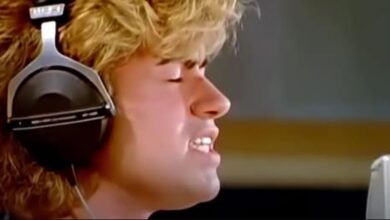This song remains timeless, especially for those who grew up listening to it as teenagers in the ’70s
“Smoke on the Water” is one of the most iconic rock songs, performed by the British rock band Deep Purple. Released in 1972 as part of their album “Machine Head,” the song is known for its distinctive riff, composed by guitarist Ritchie Blackmore. This riff is one of the most recognizable in rock music history and is often cited as the first riff that aspiring guitarists learn to play.
The song’s lyrics, written by the band’s lead singer Ian Gillan, narrate the true story of a fire that broke out during a Frank Zappa concert at the Montreux Casino in Switzerland. Deep Purple was in Montreux to record an album using a mobile recording studio rented from the Rolling Stones. The fire was caused by a flare gun fired by an audience member, which led to the casino’s destruction. The “smoke on the water” refers to the smoke from the fire spreading over Lake Geneva, which the band members witnessed from their hotel.
Despite its simplistic structure, “Smoke on the Water” showcases the band’s musical prowess. Jon Lord’s powerful organ playing complements Blackmore’s guitar riff, while Ian Paice’s steady drumming and Roger Glover’s bass provide a solid rhythm foundation. This interplay between instruments creates a sound that captures the essence of early 1970s hard rock.
The song’s recording was challenging due to the aftermath of the casino fire. Deep Purple had to find an alternative recording location, eventually settling on the empty Grand Hotel in Montreux. Recording in the hotel’s hallways and corridors, the band achieved a unique sound that contributed to the song’s raw and live feel.
“Smoke on the Water” wasn’t initially released as a single, but its popularity on album-oriented rock radio stations led to its eventual release. It reached number 4 on the Billboard pop singles chart in the United States in 1973, making it one of Deep Purple’s most successful singles. The song’s enduring popularity is evidenced by its frequent inclusion in various “greatest rock songs” lists and its continued presence in pop culture, including movies, TV shows, and commercials.
Deep Purple’s performance style also contributed to the song’s legend. Known for their energetic and improvisational live shows, the band often extended “Smoke on the Water” with solos and jams, showcasing each member’s musical skills. This aspect of their performances highlighted the song’s role as a vehicle for musical expression beyond its studio version.
The influence of “Smoke on the Water” extends beyond its immediate success. It has inspired countless musicians and bands to explore hard rock and heavy metal. The song’s simple yet powerful riff serves as a testament to the idea that complexity is not necessary for a piece of music to make a significant impact.
In conclusion, “Smoke on the Water” stands as a monumental achievement in rock music. Its creation under unusual and difficult circumstances, combined with Deep Purple’s musical talent, resulted in a song that has transcended its origins to become a universal anthem in rock music. The story behind the song, coupled with its infectious riff and powerful performance, ensures its place in the annals of rock history.





